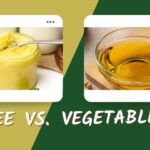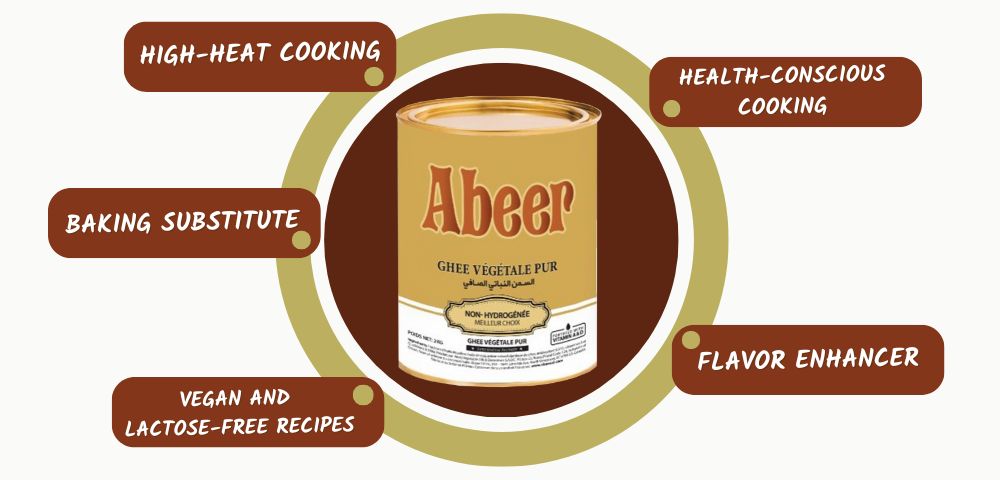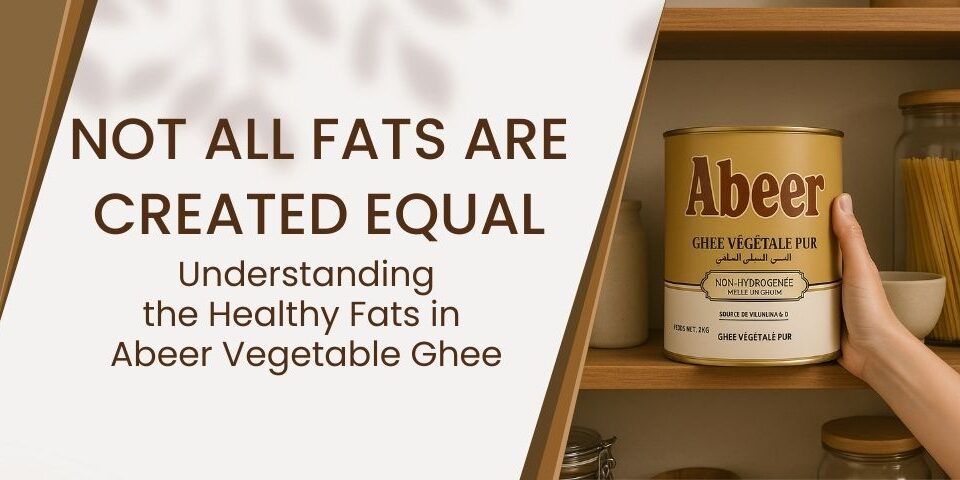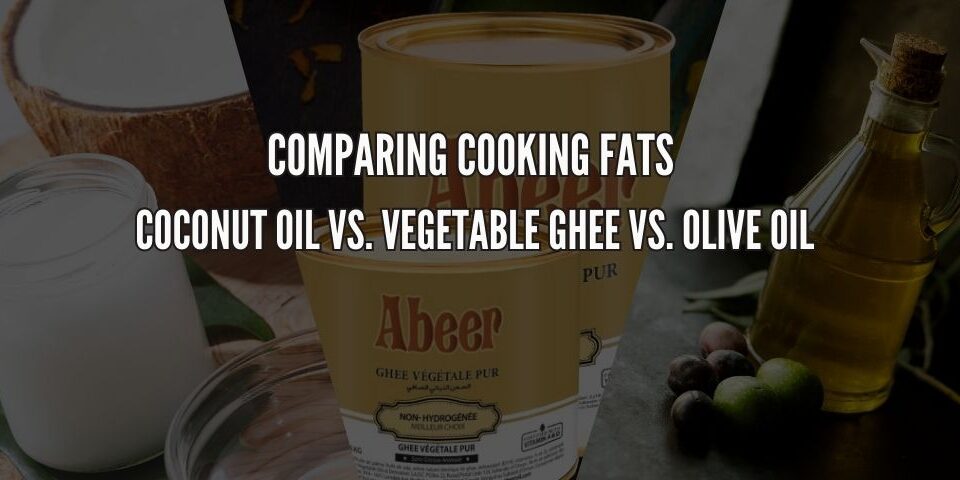
Ghee vs. Vegetable Oil: Which is Better for Health and Cooking?
November 21, 2024
Vegetable Ghee vs. Butter Ghee: Which is Right for You?
December 30, 2024Vegetable Ghee Uses: A Versatile Kitchen Staple

Vegetable ghee, a plant-based alternative to traditional ghee, is making waves in modern kitchens for its versatility and health benefits. If you’re curious about how vegetable ghee compares to its animal-derived counterpart, check out our detailed guide, Animal Ghee vs. Vegetable Ghee. Once you understand the benefits, dive into the many ways this incredible ingredient can transform your cooking.
1. High-Heat Cooking
One of the most notable attributes of vegetable ghee is its high smoke point. This makes it an excellent choice for cooking methods that require high temperatures, such as:
- Stir-Frying: Use vegetable ghee to stir-fry vegetables, tofu, or proteins. Its high smoke point ensures your food cooks evenly without burning, and its mild flavor enhances the dish.
- Deep-Frying: Unlike other oils that break down at high heat, vegetable ghee retains its stability, making it ideal for deep-frying snacks like samosas, fritters, or crispy fried chicken.
2. Baking Substitute
Vegetable ghee can be a fantastic substitute for butter or margarine in baking, especially for those seeking plant-based options. Its creamy texture and neutral flavor make it suitable for:
- Cookies and Cakes: Achieve a rich and moist texture in baked goods by swapping butter with vegetable ghee.
- Pie Crusts: Create flaky and golden crusts for pies and tarts with this versatile ingredient.
3. Vegan and Lactose-Free Recipes
For individuals with dietary restrictions, vegetable ghee is a game-changer. As a dairy-free and vegan-friendly option, it can be used in:
- Vegan Curries: Enhance the depth of flavor in curries by cooking with vegetable ghee instead of regular oil.
- Plant-Based Desserts: From vegan brownies to ghee-based puddings, this ingredient is a must-have for creative vegan cooking.
4. Flavor Enhancer
Vegetable ghee is not just a cooking fat; it also acts as a flavor enhancer. Add a small amount to finish dishes like:
- Soups and Stews: A spoonful of ghee can elevate the richness of your soup or stew.
- Rice Dishes: Drizzle a bit of vegetable ghee over steamed rice or biryani for added aroma and taste.
5. Health-Conscious Cooking
Compared to traditional animal ghee, vegetable ghee is often considered a heart-friendly option. Its plant-based origins make it lower in cholesterol, making it suitable for:
- Everyday Cooking: Use vegetable ghee in your daily meals without worrying about excessive saturated fat.
- Healthy Snacks: Roast nuts or seeds in vegetable ghee for a nutritious and flavorful snack.
Can Vegetable Ghee Replace Other Cooking Fats?
Absolutely! Vegetable ghee is a versatile alternative to oils and butter in most recipes. Here’s why:
- Consistency: Its semi-solid state at room temperature makes it easy to measure and use.
- Flavor Balance: While it enhances the taste of dishes, it doesn’t overpower other ingredients, making it ideal for recipes that rely on delicate flavors.
- Adaptability: You can use it as a 1:1 substitute for vegetable oil or butter in most recipes, whether frying, baking, or sautéing.
Bringing It All Together
Vegetable ghee is a versatile ingredient that fits into any kitchen, offering countless possibilities for creating delicious meals. From enhancing soups to replacing butter in desserts, its adaptability knows no bounds.
Ready to experiment? Check out our curated list of Vegetable Ghee Recipes for inspiration and start cooking with Abeer Vegetable Ghee today!



